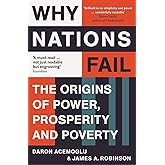
Lade die kostenlose Kindle-App herunter und lese deine Kindle-Bücher sofort auf deinem Smartphone, Tablet oder Computer – kein Kindle-Gerät erforderlich.
Mit Kindle für Web kannst du sofort in deinem Browser lesen.
Scanne den folgenden Code mit deiner Mobiltelefonkamera und lade die Kindle-App herunter.

Bild nicht verfügbar
Farbe:
-

-
-
- Herunterladen, um dieses Videos wiederzugeben Flash Player


 Hörprobe
Hörprobe Dem Autor folgen
OK
Kaput: The End of the German Miracle Gebundene Ausgabe – 7. November 2024
Kaufoptionen und Plus-Produkte
'Compelling' Guardian
'Eloquent and comprehensive' Financial Times
'Excellent' The Telegraph
'Astonishing' The Times
'An eye-opener' Gavin Esler
Until recently, Germany appeared to be a paragon of economic and political success. Angela Merkel was widely seen as the true ‘leader of the free world’, and Germany’s export-driven economic model seemed to deliver prosperity. But recent events – from Germany’s dependence on Russian gas to its car industry’s delays in the race to electric – have undermined this view.
In Kaput, Wolfgang Münchau argues that the weaknesses of Germany’s economy have, in fact, been brewing for decades. The neo-mercantilist policies of the German state, driven by close connections between the country’s industrial and political elite, have left Germany technologically behind over-reliant on authoritarian Russia and China – and with little sign of being able to adapt to the digital realities of the 21st century. It is an essential read for anyone interested in the future of Europe’s biggest economy.
- Seitenzahl der Print-Ausgabe250 Seiten
- SpracheEnglisch
- HerausgeberSwift Press
- Erscheinungstermin7. November 2024
- Abmessungen13.49 x 1.37 x 21.59 cm
- ISBN-101800753438
- ISBN-13978-1800753433
Wird oft zusammen gekauft

Kunden, die diesen Artikel angesehen haben, haben auch angesehen
Produktbeschreibungen
Pressestimmen
‘Eloquent and comprehensive deconstruction of the German model’ - Harold James, Financial Times
‘A compelling new book about the end of the German economic miracle’ - Larry Elliott, Guardian
'Excellent' - Daniel Johnson, The Telegraph
‘With vivid anecdote, telling detail and characteristically robust language, Wolfgang Münchau excoriates the failure of Germany’s corporate neo-mercantilism to prepare for the economic challenges of today and tomorrow’ - Timothy Garton Ash, author of Homelands: A Personal History of Europe
'Wolfgang Münchau is one of the sharpest minds in British and European journalism. In Kaput he tells the compelling story of Germany’s economic wonder gone wrong – for now at least. For those of us who never under-estimate German ingenuity and competitiveness this is an eye-opener, an accessible account of the troubles and also the potential in Europe’s greatest economy’ - Gavin Esler
‘Münchau makes a strong case here that the German economic miracle is over’ - Howard Davies, Literary Review
'The best and most detailed account of the German economic decline to date' - Tyler Cowen, Marginal Revolution
‘His critique of the German model couldn’t be more timely … An astonishing read … Dry humour lends his economic analysis levity and accessibility’ - Katya Hoyer, The Times
‘A cautionary tale on the downsides of trying to mix politics and investment’ - Matthew Partridge, MoneyWeek Book of the Week
Über den Autor und weitere Mitwirkende
Wolfgang Münchau is a journalist and commentator who focuses on the European economy and the European Union. He is director of leading news service Eurointelligence and a columnist for the New Statesman.
Produktinformation
- Herausgeber : Swift Press (7. November 2024)
- Sprache : Englisch
- Gebundene Ausgabe : 250 Seiten
- ISBN-10 : 1800753438
- ISBN-13 : 978-1800753433
- Abmessungen : 13.49 x 1.37 x 21.59 cm
- Amazon Bestseller-Rang: Nr. 4.705 in Bücher (Siehe Top 100 in Bücher)
- Nr. 7 in Wirtschaftspolitik (Bücher)
- Nr. 69 in Wirtschaft (Bücher)
- Nr. 480 in Fremdsprachige Bücher
- Kundenrezensionen:
Informationen zum Autor

Entdecke weitere Bücher des Autors, sehe ähnliche Autoren, lese Buchempfehlungen und vieles mehr.
Kundenrezensionen
- 5 Sterne4 Sterne3 Sterne2 Sterne1 Stern5 Sterne77%17%2%2%3%77%
- 5 Sterne4 Sterne3 Sterne2 Sterne1 Stern4 Sterne77%17%2%2%3%17%
- 5 Sterne4 Sterne3 Sterne2 Sterne1 Stern3 Sterne77%17%2%2%3%2%
- 5 Sterne4 Sterne3 Sterne2 Sterne1 Stern2 Sterne77%17%2%2%3%2%
- 5 Sterne4 Sterne3 Sterne2 Sterne1 Stern1 Stern77%17%2%2%3%3%
Kundenbewertungen, einschließlich Produkt-Sternebewertungen, helfen Kunden, mehr über das Produkt zu erfahren und zu entscheiden, ob es das richtige Produkt für sie ist.
Um die Gesamtbewertung der Sterne und die prozentuale Aufschlüsselung nach Sternen zu berechnen, verwenden wir keinen einfachen Durchschnitt. Stattdessen berücksichtigt unser System beispielsweise, wie aktuell eine Bewertung ist und ob der Prüfer den Artikel bei Amazon gekauft hat. Es wurden auch Bewertungen analysiert, um die Vertrauenswürdigkeit zu überprüfen.
Erfahren Sie mehr darüber, wie Kundenbewertungen bei Amazon funktionieren.Spitzenrezensionen aus Deutschland
Derzeit tritt ein Problem beim Filtern der Rezensionen auf. Bitte versuche es später erneut.
- Bewertet in Deutschland am 4. Dezember 2024Wolfgang Munschau’s Kaput: The End of the German Miracle is a powerful and insightful work that sheds light on the economic and political transformations currently taking place in Germany, offering readers a much-needed perspective on the nation’s future. With its compelling analysis and eye-opening conclusions, this book is a must-read for anyone looking to understand the underlying forces reshaping Germany today. It is baffling, however, that this important work has not garnered the attention it deserves in the German media.
Munschau takes a bold approach in unpacking the so-called "German Miracle," which has long been seen as the foundation of the country's economic success. With clarity and precision, he explores how factors like an aging population, economic stagnation, energy crises, and political gridlock are eroding the stability of Germany’s position as Europe’s powerhouse. In a time when Germany’s economy is facing pressures from all sides—rising inflation, energy insecurity, and global supply chain disruptions—Munschau’s analysis offers essential context and urgently needed understanding.
What makes Kaput especially relevant to the current political and economic climate in Germany is how it dives deep into the mechanisms that allowed Germany to thrive post-WWII and the internal contradictions that are now undermining the very systems that once sustained its prosperity. From the issues plaguing the labor market to the mounting challenges in the industrial sector, Munschau illustrates how Germany's strengths are increasingly becoming weaknesses. He calls attention to the failures of current leadership, as well as the tensions within German society that are only now beginning to surface in full force.
What truly sets Kaput apart, however, is its urgent call for introspection. Munschau urges every German citizen to understand the internal shifts occurring in their own nation, pointing out that the challenges faced by the country are not just abstract or distant problems—they are personal, they affect everyone. In times of uncertainty, books like these are invaluable, as they offer a grounded, evidence-based view of why things are the way they are, and how the country might navigate the choppy waters ahead.
It is perplexing, then, that the book has received so little attention in Germany itself. The country’s media landscape seems reluctant to confront the uncomfortable truths Munschau lays out. Perhaps the media’s silence is a reflection of a broader political and economic reluctance to acknowledge that the German model, which has long been touted as a beacon of stability, is faltering. In some ways, the media's avoidance of Kaput could be an attempt to protect the prevailing narrative that Germany is still a model of economic success and political order. The reluctance to embrace such a candid and critical work speaks volumes about the challenges the country faces when grappling with its own decline, whether in terms of economic output, social cohesion, or international influence.
This book must be translated into German for the benefit of every citizen, politician, and economist in the country. It’s not just a wake-up call—it’s a roadmap for understanding the tectonic shifts taking place beneath the surface of daily life in Germany. Without this kind of honest analysis, Germany risks slipping further into complacency, blind to the forces eroding its foundations. The Germans must read Kaput because they deserve to know what is happening in their own country, and only by confronting these truths can they begin to chart a course towards a more sustainable future.
In conclusion, Kaput: The End of the German Miracle is an essential read for anyone who wants to understand the pressing economic and political challenges facing Germany today. It is unfortunate that the book has not received more attention in Germany, as it offers an unflinching look at the forces currently reshaping the country. For all the citizens of Germany, this book is not just relevant—it is necessary to understand what is happening right now, and what the future might hold.
- Bewertet in Deutschland am 25. Dezember 2024Basically a criticism of the economic structure of Germany.
Germany's economic structure worked very well when it worked. According to the author, it no longer works because the two fundamentals it relies on disappear: cheap Russian gas and unlimited Chinese buyers. Because the whole weight of the country is supported by just two legs with no buffer from diversification, when it falls it falls rapidly.
Some of Germany's failures are not unique to Germany. German auto-makers fails splendidly, so do almost all auto-makers in the world except for BYD (even Tesla has falling market share in China, although outside China it shines when Chinese players are barred by import restrictions). But the author is correct that lack of diversity (reliance on Russian gas and a few manufacturing that has few big buyers) is the root of the problem.
Though the criticality of the issue, the author has surprisingly little criticism on Merkel. It appears that like the majority of workers in the legacy media, the author is a fan of Merkel, despite her deeds. Even though the author might be correct that the neo-mercantilism of Germany started well before Merkel, 16 years is still a very long time for any changes you want to make (just look at how much Trump disrupted in just 4 years). It's just like analysing Titanic without mentioning the actions/inactions of the captain.
The author has a typical Anglo-Saxon view of economy that a western country should focus on service and immigration. I see these two are just like another form of Russian gas and Chinese buyers that the author criticised: when it works, it works well, until it doesn't. Immigration is particularly a weird direction: no countries in the world can rely on highly skilled immigrations except for the a few English-speaking countries (yes, English-speaking is a prerequisite). Even Europe's own brains have been leaving for America for decades.
In the end, author's own claim is on the one hand very true but on the other hand defeats the whole purpose of any analysis: things don't fail (or work) in theory, it just fails (or works).
- Bewertet in Deutschland am 6. Januar 2025In a very clear language the problems Germany is in are spelt out clearly. Should be mandatory reading for all Germans prior to the election end February!!!!
- Bewertet in Deutschland am 11. Dezember 2024I liked everything; and Wolfgang Munchau could have written a much longer book because he knows much more.
He could have taken his time and write a massive analysis with more facts.
A must read for so many specially those that cue in Berlin bookstores for glorified narratives from former politicians to get a book signature.
Future historians will read this book and have the truth.
- Bewertet in Deutschland am 9. Dezember 2024As a high-skilled migrant living in Germany I can see some of the issues from inside, especially with bureaucracy and attitude to migrants. Society just doesn’t differentiate refugees and high-skilled labour, all of them are migrants and source of annoyance.
- Bewertet in Deutschland am 9. Dezember 2024I'm really enjoyed the book. The author takes his times to explain the issue and its well-researched
- Bewertet in Deutschland am 12. Dezember 2024Easy to read and factual
- Bewertet in Deutschland am 28. November 2024Explanation in layman terms of German economic history - source of current troubles and personal perspective. Book also offers ample of sources to cross-check.
Spitzenrezensionen aus anderen Ländern
-
 Peter ChapmanBewertet in Großbritannien am 4. Januar 2025
Peter ChapmanBewertet in Großbritannien am 4. Januar 20255,0 von 5 Sternen Very Informative
I heard the author interviewed by Hugo Rifkind on Times Radio whilst driving. I was so intrigued by the story that I bought it immediately on arriving home. It's a very good read and explains clearly why the German economy is struggling - because of bureacratic and authoritarian resistance to change within Germany, combined with competition from China outside.
-
 starBewertet in den Niederlanden am 18. Dezember 2024
starBewertet in den Niederlanden am 18. Dezember 20245,0 von 5 Sternen I wish I didn't buy my VS in 2014
I live in the Netherlands, you can feel VW Netherlands is total shock. People buy as electric car, but not from Germany. This is A Great Book.
-
 R. A.Bewertet in Spanien am 15. Dezember 2024
R. A.Bewertet in Spanien am 15. Dezember 20245,0 von 5 Sternen Muy claro y preciso
Explica muy bien la esencia de lo que ha sido hasta ahora el desarrollo de la economía alemana. Unos artesanos e ingenieros excelentes pero con problemas de adaptación a la nueva economía digital.
-
 WilliamBewertet in Großbritannien am 20. Dezember 2024
WilliamBewertet in Großbritannien am 20. Dezember 20245,0 von 5 Sternen Brilliant
Very very interesting and easy to follow
-
 SylvieBewertet in Spanien am 1. Dezember 2024
SylvieBewertet in Spanien am 1. Dezember 20245,0 von 5 Sternen Interesante....
Interesante
















